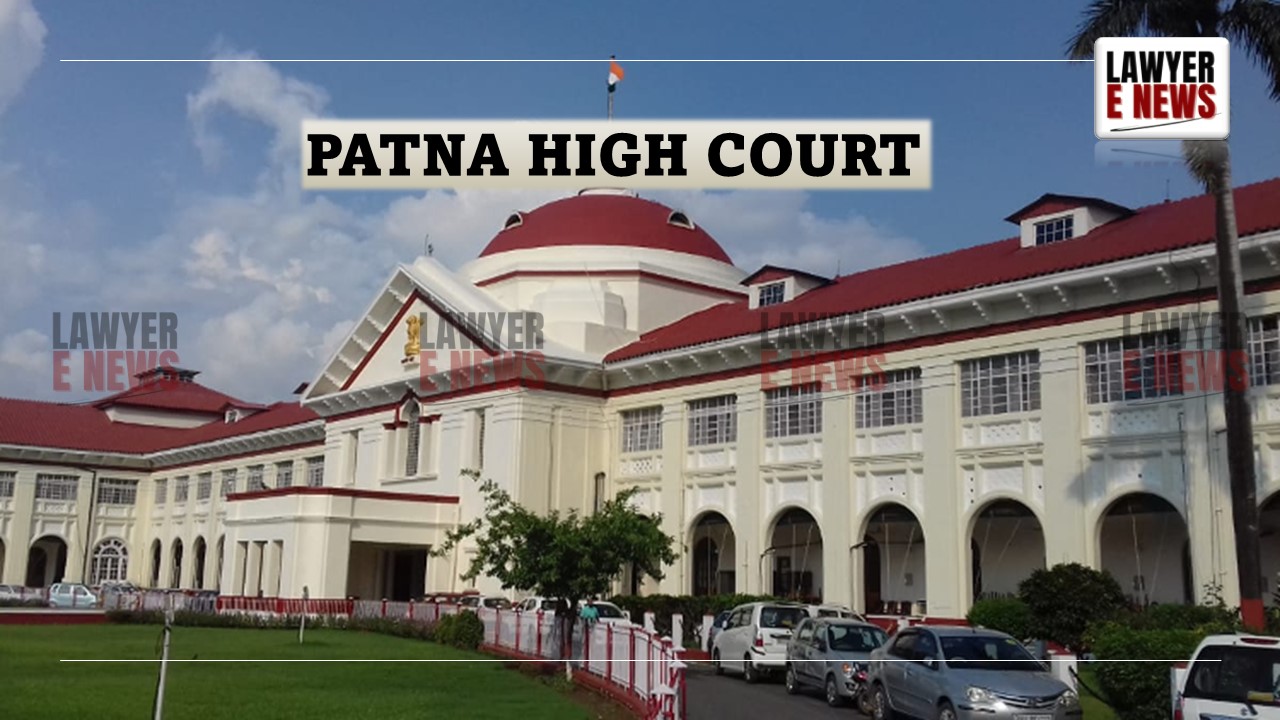-
by Admin
15 February 2026 5:35 AM



In a significant judgment Patna High Court clarified the jurisdictional limitations regarding writ petitions challenging interlocutory orders of civil courts. The court, in Bipin Kumar v. Urmila Devi & Others, held that such orders are not subject to writ jurisdiction under Article 226 of the Constitution and directed the conversion of the writ petition into a Civil Miscellaneous Petition under Article 227.
Justice Mohit Kumar Shah relied extensively on the Supreme Court's decision in Radhey Shyam v. Chhabi Nath [(2015) 5 SCC 423], which categorically overruled earlier precedents conflating Articles 226 and 227 jurisdiction, stating:
"Judicial orders of civil courts are not amenable to writ jurisdiction under Article 226. Such control lies within the constitutional powers of superintendence conferred by Article 227."
The petitioner, Bipin Kumar, challenged an interlocutory order passed by Sub Judge 2, Muzaffarpur, rejecting his application under Order I Rule 10 of the Code of Civil Procedure, 1908 (CPC) in Title Suit No. 122/83. The writ petition sought the issuance of a writ in the nature of certiorari to quash the impugned order.
The court addressed whether interlocutory judicial orders of civil courts can be challenged under Article 226. Referring to Radhey Shyam, Justice Shah observed:
"Judicial orders from civil courts stand on a different footing compared to orders from tribunals or statutory authorities. While tribunals may be subject to writ jurisdiction, civil court orders are amenable only to appellate, revisional, or Article 227 jurisdiction."
The judgment highlighted the distinct purposes served by these articles:
"Article 226 provides a constitutional remedy for infringement of fundamental or statutory rights by authorities or tribunals. Conversely, Article 227 grants supervisory powers over subordinate courts to ensure procedural regularity and adherence to law."
In this regard, the court cited Shalini Shyam Shetty v. Rajendra Shankar Patil [(2010) 8 SCC 329], which emphasized that:
"Frequent interference with civil or criminal proceedings under Article 227 disrupts the judicial process and should be exercised sparingly."
Following procedural amendments to the High Court Rules after Radhey Shyam, the court directed the conversion of the writ petition into a Civil Miscellaneous Petition. Justice Shah stated:
"Petitions challenging orders of civil courts under Article 227 must adhere to the procedural framework established by the High Court rules. Such cases shall be filed and numbered as Civil Miscellaneous Petitions."
The judgment incorporated critical excerpts from Radhey Shyam, solidifying the principle that civil court orders are not amenable to writ jurisdiction:
"The High Court's power under Article 227 remains unaffected by procedural amendments to the CPC or limitations on revisional powers. However, this does not equate to an expansion of such jurisdiction."
The Supreme Court had observed in Radhey Shyam:
"Control over subordinate civil courts is exercised constitutionally under Article 227, while writs such as certiorari address decisions by quasi-judicial bodies or authorities."
The court granted the petitioner four weeks to convert the writ petition into a Civil Miscellaneous Petition, directing the registry to facilitate this conversion promptly. Acknowledging the prolonged pendency of the case—spanning over a decade—the court emphasized expedited listing for disposal. Justice Shah remarked:
"The registry must ensure that cases of such prolonged pendency are prioritized to prevent undue delays in justice."
Article 226 Does Not Apply to Civil Court Orders: Civil court judicial orders must be challenged via appeal, revision, or Article 227 jurisdiction.
Procedural Clarity: Challenges to such orders must comply with High Court rules mandating Civil Miscellaneous Petitions.
Judicial Restraint Under Article 227: Interference with pending civil or criminal matters should remain an exception, reserved for cases of significant procedural irregularity or jurisdictional errors.
Date of Decision: November 26, 2024
